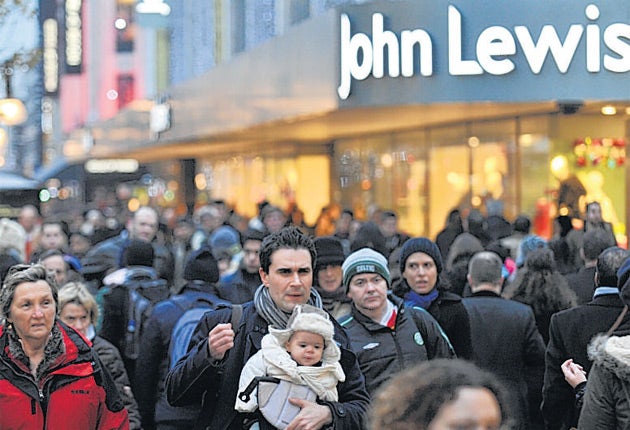The Year in Review: The economy
After the belated bounce, it's time for the long, hard slog

If 2010 was the year of the bounce, for the economy did manage to bounce off the bottom and make a somewhat better recovery than originally forecast, 2011 will be the year of the slog. Or at least it will be a slog for Britain and much of the rest of the developed world, as the emerging economies are quite a different story.
Think of the headwinds we face. The year will start with the increase in VAT to 20 per cent. We can have little feeling for the impact that will have on people's spending habits and it may be that once we are used to it, we will grit our teeth and stump up. But it cannot be good news. Then, hanging over the whole year will be a slow property market. If as recent research suggests Britons are happier when house prices are rising and more miserable when they are falling, then 2011 looks pretty dismal. Most of the forecasters are suggesting prices will either be flat or fall. Then on 23 March there will be the budget, bringing further tax increases, albeit relatively modest ones.
As we move through to the summer the impact of the public spending cuts will gradually start to become more evident. For all the talk in 2010, and all the protests, not much actually happened to the big numbers. The Government's deficit this financial year has been running at roughly the same level as in 2009-10, and has remained the highest of any large economy. So the heavy stuff is still to come.
The huge imponderable is what all this does to economic growth. If the coalition has had luck on its side during 2010, with growth at around 1.8 per cent being about half a percentage point better than expected, it needs growth to be sustained at 2 per cent or more for employment to be maintained and for its own sums to come out on plan. Some forecasts are a little better, with for example Goldman Sachs expecting 2.4 per cent, but some of course are worse. The truth is we don't know.
There is a further conundrum: what happens to interest rates. At some stage interest rates have to get back to normal. You cannot have inflation at more than 3 per cent and interest rates at 0.5 per cent for ever. Aside from the morality of punishing savers for their prudence, ultra-low rates are likely to lead eventually to more inflation, and so the correction, when it comes, will be all the more vicious. But it must be on the cards that the first rises in rates, here and elsewhere, will come in 2011.
As always much will depend on what happens in the rest of the world. We know it will be a two-speed world, with developed countries struggling and emerging economies racing ahead. We know that weaker European economies are likely to need some sort of bail-out on the lines of Greece and Ireland. But if the experience of the past two years has taught us anything it is that though there is an economic cycle and we are now recovering, no two cycles are the same. It would be nice to assert that global growth will pull up the UK along with everyone else and that may turn out to be the case. But economies rarely do what they are supposed to, and economists are spectacularly successful at getting things wrong. So 2011 will be a year of growth, sure. But it won't feel great, for there is still a mountain, a mountain of debt, to climb.
Join our commenting forum
Join thought-provoking conversations, follow other Independent readers and see their replies
Comments